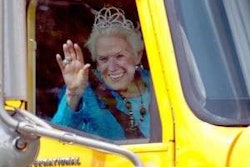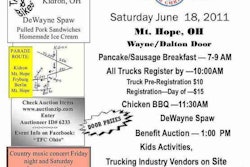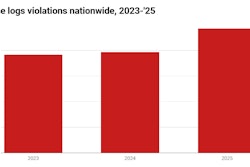The title, “Do Not Enter: How Proposed Hours of Service Trucking Rules are a Dead End for Small Businesses,” summarized the June 14 U.S. House subcommittee hearing.
The Small Business Committee Subcommittee on Investigations, Oversight and Regulations heard testimony from trucking company leaders against the HOS Notice of Proposed Rulemaking.
Subcommittee Chairman Mike Coffman, (R-Colo.) convened the hearing to explore the Federal Motor Carrier Safety Administration’s proposal. It would reduce the daily driving limit, decrease the maximum on-duty time limit, require mandatory breaks and change the current 34-hour restart provision.
Truck-related crashes have dropped more than 40 percent since the current HOS rules were implemented in 2003. But the FMCSA created the “complicated and cumbersome” NPRM, based on outdated truck-related crash figures, Coffman said.
“Even more disturbing is that it is estimated that there will be a cost of $2.5 billion annually on the industry if the proposed hours of service regulations are finalized,” he said.
James Burg, president of James Burg Trucking Co. and an American Trucking Associations board member, said the proposal would restrict productivity and increase congestion and emissions. It would force Burg to add drivers and trucks, making it necessary for his 75-truck Michigan-based company to try and increase retained earnings by between 20 and 25 percent.

“These changes, if finalized, would have a profoundly negative impact on small businesses, would restrict productivity and would result in greater congestion and increased emissions,” Burg said.
Paul James, president of Colorado-based Rex Oil Co., testified on behalf of the Petroleum Marketers Association of America. His drivers are home every night and the proposal should not apply to short-haul drivers, he said.
Rusty Rader, co-owner of Pennsylvania-based J.J. Kennedy, testified for the National Ready Mixed Concrete Association, and. J.D. Morrissette, a senior vice president of Virginia-based Interstate Van Line Operations, spoke on behalf of the American Moving and Storage Association.
No other witnesses testified, although FMCSA representatives usually testify at hearings involving the agency’s work. A subcommittee spokeswoman said they do not disclose who they ask to testify, only those who confirm they will speak. She did not immediately respond to an inquiry if the subcommittee requested a FMCSA representative testify.
In 2009, safety and labor groups challenged the current HOS rule. The U.S. Court of Appeals granted the parties’ joint motion to hold the case in abeyance, pending the issue of a new HOS proposal.
“If the FMCSA promulgates a new rule that is substantially different from the 2008 rule, that may obviate the need for judicial review of the current rule,” the court stated.









